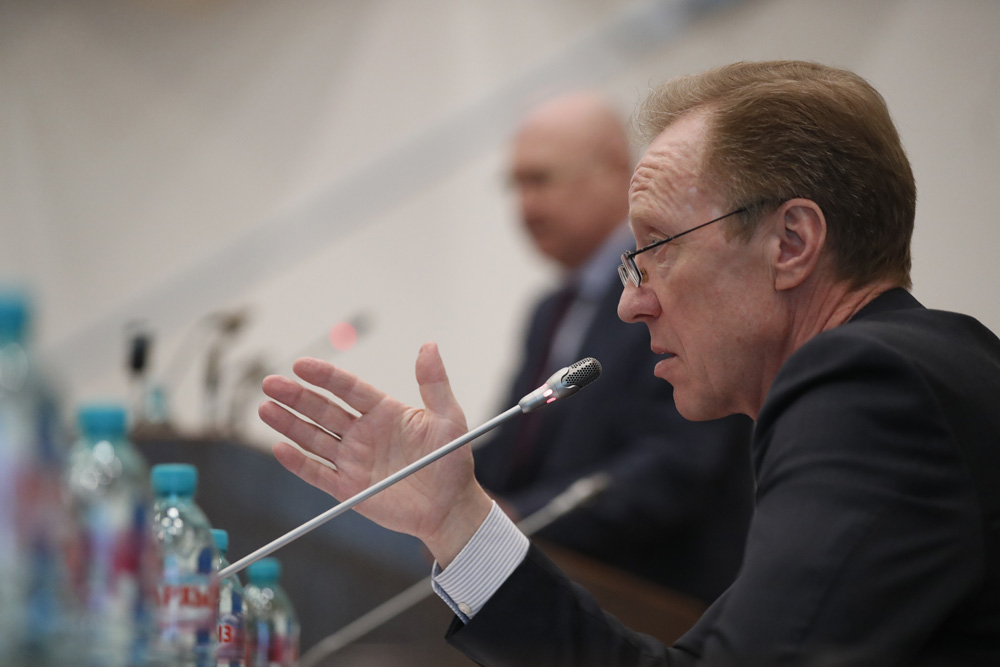MEF-2018: Conference No. 4

Published: May 7th, 2018
The gap in living standards between regions and the capital is increasing. State policy based on the Soviet directive management model does not help to reduce the backlog. Given the high degree of centralization of resources and powers, the aggregate of real actions of the federal authorities is more selectively supportive than a system-wide regulatory and institutional character. Experts of the Moscow Economic Forum believe that the current model does not work and the regions need to provide more freedom. Having received more funds and powers, the regional authorities will be able to significantly expand their ability to independently solve the problems of regional development, while the federal authorities will be able to focus primarily on the creation of the necessary general conditions and prerequisites for this."The government does not have full information about the problems, conditions and growth opportunities in this or that area. It is not surprising that too often decisions on specific regions can be determined not so much by socio-economic considerations as by efforts of political lobbying, and therefore are often highly politicized, "the conference moderator believes. Large subsidies of the "center" inevitably generate the dependent moods of regional authorities and oppressively act on local incentives for economic growth, the expert believes.
Today, in order to develop the subjects of the Russian Federation, a document entitled "The State Strategy of Spatial Development of Russia" has been developed. However, in this strategy, according to Eugene Buchwald, there are no clear working mechanisms. This document he compared with the dress of the king, which everyone is discussing, but no one saw what it looks like.
"The task of the strategy is to prevent the reduction of economic growth in the regions, to overcome the outflow of the population, and to increase incomes. However, how to implement these tasks is not prescribed. There are no indicators that need to be taken as a basis, "Buchwald said. All positions, the speaker is sure, are spelled out dual, and how to understand them is unknown.
Sergey Valentei holds a similar position. In his opinion, the document does not specify the main thing, for which the state as a whole and each ministry in particular is responsible. The Speaker and the proposal of the Ministry of Finance thinks that it is not effective: go to the model budget. This means allocating a certain amount of money to the regions to independently resolve their problems. According to Valentey, in the first place, subjects need to be interested in solving their gaps.
To overcome disproportion, the regions, Leonid Vardomsky is sure, should cooperate with each other, and help each other. A big role in this work is assigned to Moscow. Speaker believes that the capital needs to take under its care the most depressive regions. For example, the Ivanovo, Tambov, and Orlovsk regions. In these regions, there is a shortage of labor due to out-migration.
Alexander Vilenskiy spoke about the development of business in small towns and regions. According to him, today more than 25 million people work outside their districts and cities. The reason - the lack of jobs in the area of residence. Nevertheless, to introduce business in these settlements is difficult - it is necessary to create conditions for its work first. One document for solving this task is not enough; in this issue, political will is needed.
Share:
Latest news
07.05.2018 MEF-2018: debate "Cultural policy: between individual freedom and the interests of society?"
07.05.2018 MEF-2018: Conference No. 8
07.05.2018 MEF-2018: Conference No.3
07.05.2018 MEF-2018: Conference No. 2
07.05.2018 MEF-2018: Conference No.1
26.04.2018 McConnell Discusses Information Warfare
20.04.2018 MEF-2018: closing plenary session
17.04.2018 Mr. Freysinger: «Skripal’s case» for relationship between Russia und European Union?
09.04.2018 MEF-2018: III Plenary discussion
